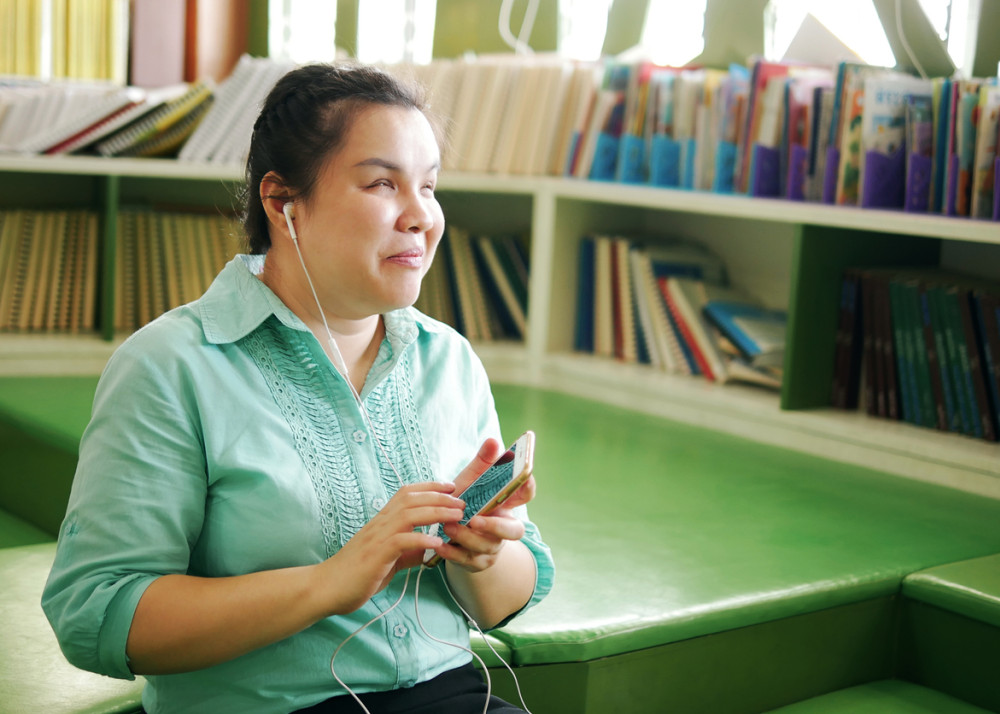What NDIS Support is Available for Students With Disabilities?
3 January, 2024
Studying at school, TAFE or University can be stressful enough on it's own. However if you or a loved one has a disability, things can become even more challenging, especially if you don't have the right supports in place.
At Focus Care, we believe that everyone should have the same educational opportunities, irrespective a student's disability. As a result, we've created this guide to help highlight the NDIS support available for students with disabilities.
While students with disability face unique challenges, the National Disability Insurance Scheme (NDIS) can be a crucial support system for both school students and students at TAFE and University.

Understanding NDIS and Its Objectives
The NDIS aims to provide support and assistance to individuals with disabilities, while fostering independence and inclusion. One important focus of the NDIS is education.
For students, the NDIS aims to break down barriers, ensuring they have access to the resources and services necessary to thrive academically.
Accessing NDIS Support for Students with Disabilities
The process of accessing NDIS support for education involves several steps. First, individuals must be eligible for NDIS. To do so, they must have a permanent disability that significantly impacts their daily life.
Once deemed eligible, a planning meeting is scheduled to assess the specific needs and goals of the student. This meeting lays the foundation for tailoring NDIS support to the individual, including their educational requirements.
 Specialised Equipment and Assistive Technology
Specialised Equipment and Assistive Technology
One key aspect of NDIS support is the provision of specialised equipment and assistive technology to support a child's learning goals.
This can include devices such as laptops with adaptive software, communication aids, and mobility devices tailored to the student's needs.
The onus is usually on the child's school or university to make accommodations however if these are not possible, NDIS funding can be used.
Personal Support Workers
For some students, having a support person attend school or university with them, can be instrumental in their educational journey.
NDIS funding can be allocated to cover the costs of a support worker who assists the student in various capacities, such as note-taking, mobility support, or providing additional explanations for class materials.
Transportation Assistance To Support Students
Transportation can be a significant hurdle for students with disabilities. The NDIS recognises this challenge and provides transport support, ensuring that students can attend school without unnecessary barriers.
This may involve funding for specialised transport services, modifications to existing transportation, or assistance with additional costs related to travel.
 Therapeutic Support
Therapeutic Support
Many students with disabilities require therapeutic support to address physical, emotional, or developmental needs. NDIS funding can be allocated to cover the costs of therapies such as physiotherapy, occupational therapy, speech therapy, or behaviour support, depending on the individual requirements of the student.
This holistic approach acknowledges that academic success is closely tied to a child's progress and overall well-being.
 Modifications to Learning Environments
Modifications to Learning Environments
Creating an inclusive learning environment often requires modifications to physical spaces and teaching methods.
NDIS support can be used to implement adjustments such as ramps, accessible bathrooms, and sensory-friendly classrooms to create accessible learning areas.
Additionally, funding can be allocated for training educators on inclusive teaching practices and learning programs, ensuring that the child's learning experience is tailored to the diverse needs of all students.
 Transition Support
Transition Support
As students progress through different stages of their education, transition support becomes crucial. The NDIS recognises this and provides assistance to ensure a smooth transition between educational levels, such as when children move from primary to secondary school or from school to tertiary education.
Plan Flexibility and Reviews
One of the strengths of the NDIS is its commitment to flexibility. Support Plans are not static; they can be reviewed and adjusted as the student's needs evolve. This adaptability ensures that NDIS plan supports remains relevant and effective throughout the student's educational journey.
Regular reviews allow for modifications reasonable adjustments to funding allocations, ensuring that resources are directed where individuals require support.
Other Types of Support
Several support services and programs are available to assist people with disabilities in pursuing their studies. These services aim to provide accommodations, financial assistance, and resources to ensure that individuals with disabilities have the same educational opportunities as everyone else. Here are some key support mechanisms available in Australia.
 Disability Liaison Officers (DLOs) at Educational Institutions:
Disability Liaison Officers (DLOs) at Educational Institutions:
School support is usually provided through DLOs that offer disability support services or specific special education teachers. These teachers may work within mainstream classrooms or in specialised settings, depending on the needs of the students. This is true of state, independent and catholic schools. Often school support is structured around a child's individual learning plan.
Most Australian universities, TAFEs (Technical and Further Education institutions), and schools also have Disability Liaison Officers.
DLOs in higher education settings, work with disability students, to arrange appropriate accommodations, support services, and facilitate communication between students and academic staff.
Higher Education Disability Support Program (DSP):
The Australian Government's DSP provides funding to higher- education providers and institutions to support students with disabilities.
This program assists in covering the costs of necessary accommodations and services, such as note-takers, interpreters, and assistive technology.
Access and Inclusion Index:
The Access and Inclusion Index is a tool that helps organisations, including educational institutions, assess and improve their inclusivity for people with disabilities. It provides a framework for measuring accessibility and inclusion practices.
National Relay Service (NRS):
The NRS is a telecommunications service for people who are deaf or have a hearing or speech impairment. It allows individuals to access phone services, including educational resources and support, using a range of accessible communication options.
 Scholarships for Students with Disabilities:
Scholarships for Students with Disabilities:
Many organisations, both governmental and private, offer scholarships specifically for educational opportunities for students with disabilities. These scholarships can help cover tuition fees, accommodation costs, and other educational expenses.
Australian Disability Clearinghouse on Education and Training (ADCET):
ADCET is a central resource for information, advice, and resources about inclusive practices within the post-secondary education sector. It is also a place you can read more about disability standards.
Student Support Group Meetings
In Australia, a student support group can be an invaluable forum to address the specific needs of students with disabilities. Led by Disability Liaison Officers and support professionals, these groups can involve teacher aides, other school staff members including the school principal and serve as communal spaces where other students facing unique challenges can come together to share experiences and discuss concerns
Student support group meetings are a great way to utilise supportive school communities and bring individual students together.
Benefits of a Child's Student Support Group
Support groups for children with disabilities take place in schools and preschools and aim to meet the unique needs of children with disabilities. Ideally they meet regularly and focus on a child's strengths. They provide a safe space for children to share their experiences and challenges. Facilitated discussions, activities, and collaborative initiatives help build a sense of camaraderie among the children, fostering peer support and understanding.
By creating a community and inclusive environment where a child with disabilities can feel valued and supported, these student support groups contribute to a positive and empowering learning experience. They lay the foundation for educational success and personal growth throughout their lives.
How Can Focus Care Help?
The NDIS plays a pivotal role in supporting students with disabilities on their educational journey. However, the NDIS is a big initiative - and can feel overwhelming at times!
If you don't know how to get started, it might help to speak to a Support Coordinator (which is included in your NDIS funding).
You might like to consider our team here at Focus Care.
As a registered NDIS provider, Focus Care understands the NDIS. Our support coordinators work with you, helping you access, understand and implement your NDIS plan. That way you can get the most out of your study.
If you’re eligible for an NDIS plan or think you might be, feel free to contact our Support Coordination team for a no-obligation consultation.
You can also contact us online or by calling 1800 362 871.




